Dehydration is the most common process in both the adults and the children. Younger children and the babies are at the risk of being affected by dehydration. It may lead to various complications if not treated properly.
Water evaporates from the bodies when you cry, breathe, sweat and when you pass the urine. Kids usually get enough amounts of water through fluids and foods they eat. Some medical conditions may make the kids to lose more amounts of water than usual leading to the dehydration.
This article discusses the causes of dehydration in toddlers. It presents various home remedies to get rid of dehydration in toddlers.
What is Dehydration in Toddlers?
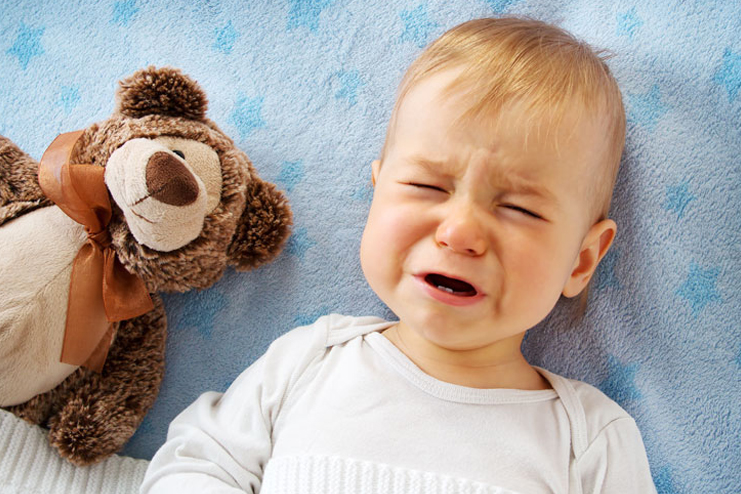
Dehydration is drying of the body due to loss of water and electrolytes. Electrolytes are the mineral salts such as sodium, potassium, and chloride that are essential for the proper body functioning. Dehydration is the condition where the child’s body lacks fluids. Dehydration occurs when the amounts of fluids that leave the body is more than the fluids that enter into the body. Infants are more vulnerable to the dehydration because of their smaller bodies.
Dehydration occurs when the fluid intake does not meet the required fluid demands of the body. Dehydration can result from the vomiting, diarrhea, fever or any combination of these conditions. Infants and small children are more likely to release more fluids than older children.
Loss of 5-10% body fluids is regarded as the moderate dehydration. Loss of 10-15% body fluid is severe dehydration which is life threatening and requires immediate medical attention.
Causes of Dehydration:
Children usually get dehydrated in the following conditions:
1. More physical activity:
Children are more likely to get dehydrated after lots of physical activity like playing and exercising.
2. Vomiting and Diarrhea:
Both these conditions flush out the fluid reserves in the body making the person sicker and more dehydrated.
3. Fever:
Fever leads to excessive sweating which causes more fluids and electrolytes to loss the body. Being unwell makes you to eat and drink less. This combination leads to the dehydration during fever.
4. Medications:
Many medications may act as diuretics and makes you to pass more urine. Any drug with vomiting and diarrhea as the potential side effect may leave your child in dehydration.
5. Lack of Breastfeeding:
Breastfed babies below the age of 6 months are more prone to dehydration if they did not get required amounts of the breastmilk.
6. Weather Conditions:
Extremely hot weather may make your child to sweat more and lose more amounts of fluids from the body leading to the dehydration.
7. Sores in child’s mouth:
Sometimes sore gums in child’s mouth may make it difficult to eat or drink which may cause or worse the situation of dehydration.
Signs and Symptoms of Dehydration:
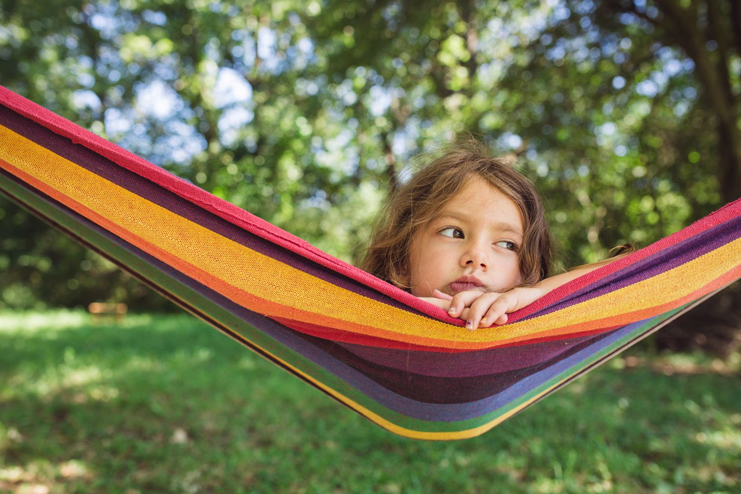
Dehydration can happen slowly or suddenly over the time. Here are a few warning signs of dehydration in toddlers:
- Dry and cracked lips
- Little or no urine for more than eight hours
- Urine may appear dark in color
- No tears while crying
- Abnormal breathing
- Your child may sleep more
- No tears while crying
- You child looks weak and sleeps more
- Extreme fussiness
- Sudden loss of weight
- Skin becomes cold and pale
- Rapid pulse rate and breathing
- Sunken soft top on top of infant’s head
- Inactivity or decreased alertness
Effects of Dehydration:
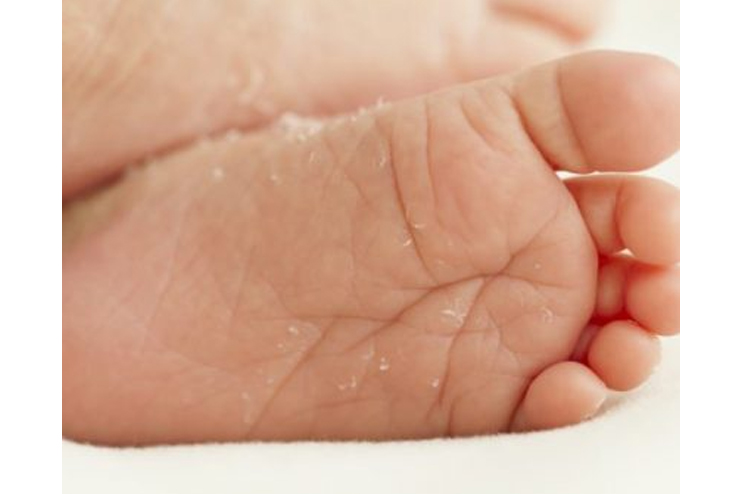
Dehydration may cause some side effects like:
- Bad breath due to dry mouth.
- Frequent chills
- Cravings for sweets and junk foods
- Headaches
- Dry skin
- Cramps in the muscles
- Complications associated with the severe dehydration are thirst, electrolyte imbalance, confusion, drowsiness, hypovolemic shock, kidney failure, severe brain damage, and death
Home Remedies for Dehydration in Children:
Here are a few natural remedies to get rid of dehydration in children.
1. Banana:
 Bananas are rich in potassium which are lost during the dehydration. They contain many other nutrients like potassium, Vitamin B6, Vitamin C, Magnesium, Copper, Manganese, Net carbs, and fiber.
Bananas are rich in potassium which are lost during the dehydration. They contain many other nutrients like potassium, Vitamin B6, Vitamin C, Magnesium, Copper, Manganese, Net carbs, and fiber.
Make your child to eat banana before intense physical activity. Bananas during dehydration will help reduce the muscle cramps too.
2. Buttermilk:

It contains water, milk, sugar lactose, and milk protein casein. Being packed with electrolytes, buttermilk is the excellent drink for dehydration. It is also rich in potassium and magnesium which are lost during the dehydration.
3. Breastfeeding:

This is one of the effective ways for treating dehydration in toddlers. Breastmilk is the rich source of proteins, minerals, carbohydrates, and fats. It is made up of amino acids. Exact composition and flavor of the breastmilk may vary depending on the food that you eat throughout the day.
4. Coconut Water:
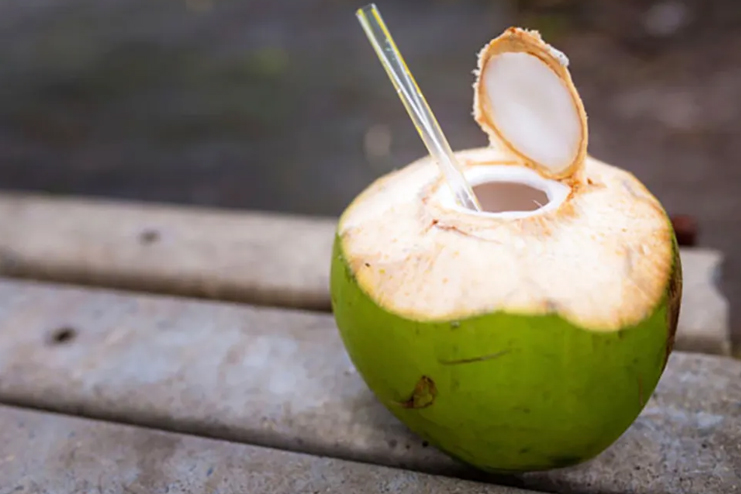
Unflavored coconut water is a great source of many minerals and nutrients. Natural Coconut water is free from cholesterol and fats. It is a good source of vitamin B, potassium, and contains many electrolytes, enzymes, amino acids.
When your body is dehydrated it loses great amounts important nutrients like sodium, and potassium. Coconut water helps to compensate the nutrients that are lost during dehydration.
5. Barley Water:
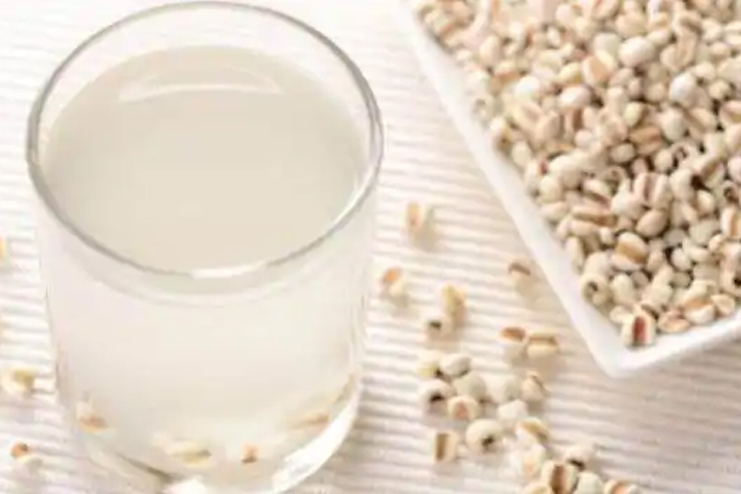
This is one of the best toddler dehydration remedies. Barley is a rich source of fiber, molybdenum, manganese, and selenium. It contains good amounts of copper, vitamin B1, chromium, phosphorous, magnesium, and niacin. The nutrients help to restore the fluids lost due to dehydration.
How to Prepare:
- Add barley in proportion with water and allow it to boil in the saucepan on a low flame for about 40 to 50 minutes.
- Ensure that the solution becomes thick.
- You can add lemon and honey for flavor after straining the barley water.
- Drink this at the regular intervals throughout the day.
6. Lemon Juice:
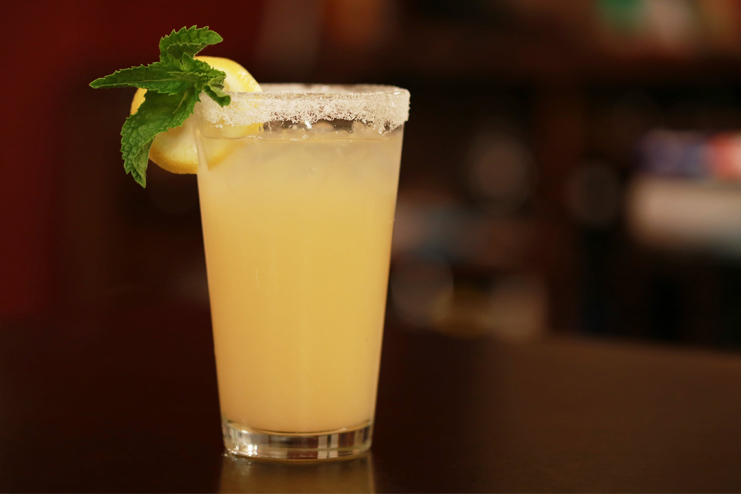 Lemon contains Phytochemicals including polyphenols, terpenes, and tannis. It contains twice and five times the citric acid in the grapefruit juice and orange juice respectively. It is the well-known remedy to avoid dehydration.
Lemon contains Phytochemicals including polyphenols, terpenes, and tannis. It contains twice and five times the citric acid in the grapefruit juice and orange juice respectively. It is the well-known remedy to avoid dehydration.
Add a tablespoon of lemon to a glass of water and add a pinch of salt or a teaspoon of sugar to it for taste. Give this to your baby twice a day for the effective results.
7. Cranberry Juice:
Cranberries contain wide range of vital B vitamins including Thiamin and riboflavin. Natural cranberry juice contains about 18 grams of carbohydrates per cup. It supply the body essential nutrients and sugars that are lost during dehydration.
Make our toddler to drink a glass of cranberry juice twice a day to recover from dehydration.
8. Cucumber:

It contains potassium, Vitamin C. They also contain small amounts of Vitamin C, Vitamin K, Magnesium, Potassium, Manganese, and Vitamin A. They contain 90% of water and offers more hydration than any other fruit.
Make your child to drink a glass of cucumber juice daily. If your toddler has started eating solid foods then peel the cucumber properly and cut it into moderate pieces which are comfortable for you toddler to chew.
9. Beetroot Juice:
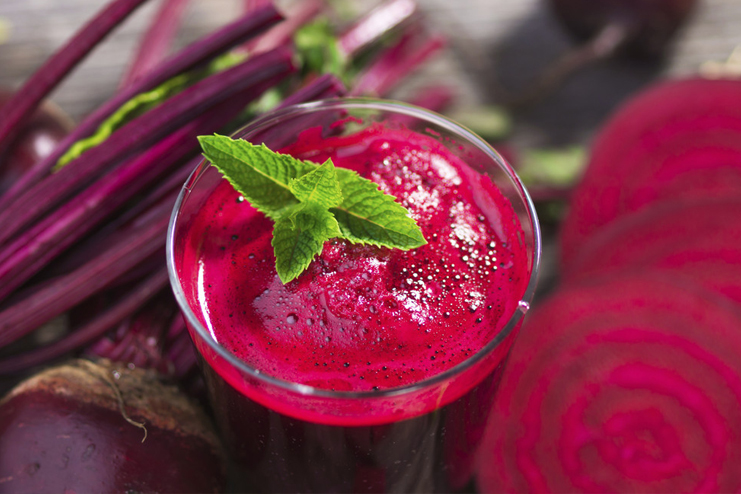
Beetroot juice strengthens your stamina during the exercise. It helps your toddler to stay strong during the immense physical activity. It is a rich source of folate and moderate source of manganese.
Offer beetroot juice to your child early in the morning or one hour before the breakfast.
10. ORS:
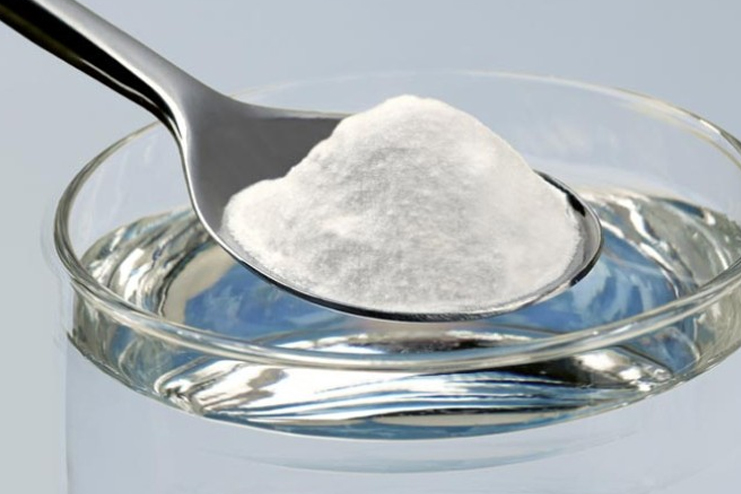
Oral rehydration solutions are the source of sodium, potassium, sugars, and salts. Studies show that offer instant rehydration for the body. They are readily absorbed by the body even when the child continues to vomit.
You can also prepare ORS solution at home.
How to Prepare:
Add 3-4 teaspoons of sugar to 2 cups of water and add 1/4 teaspoon of salt to it. You can offer 4 glasses of this ORS solution to your toddler.
11. Orange Juice:
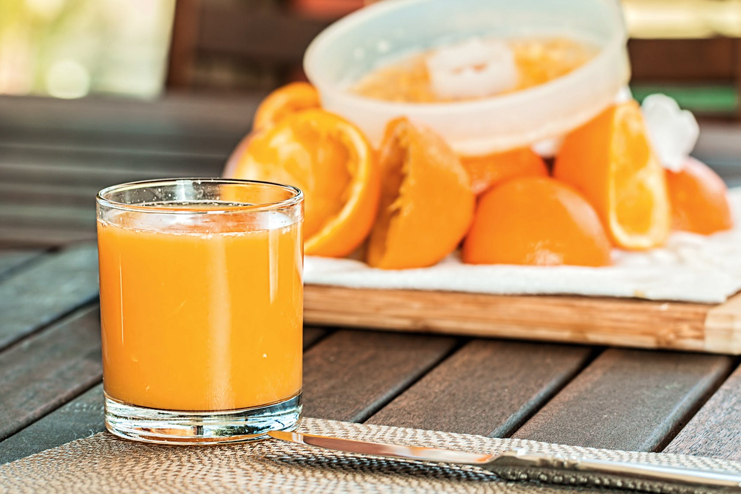 Orange juice contains the electrolytes such as sodium that help in balancing the fluids. Oranges are the rich source of Vitamin C, Vitamin B, and many other minerals like potassium.
Orange juice contains the electrolytes such as sodium that help in balancing the fluids. Oranges are the rich source of Vitamin C, Vitamin B, and many other minerals like potassium.
Allow your child to drink half cup of orange juice in a day before intense physical activity.
12. Apple Juice:
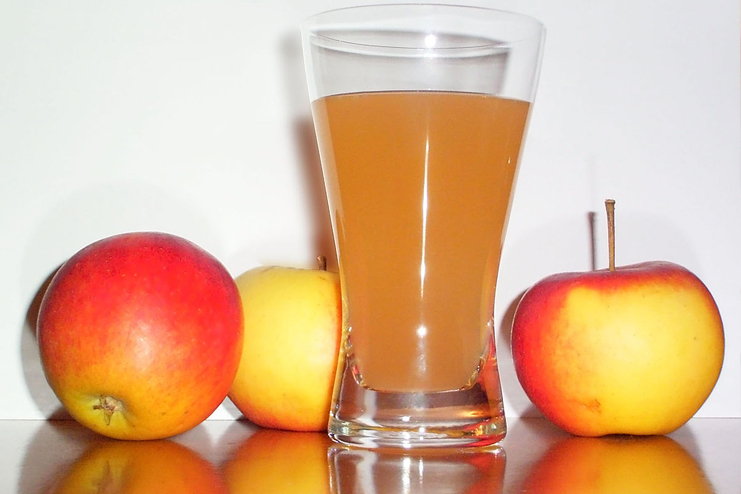
Apples contain carbohydrates, sugars, and fiber. They are the rich source of vitamin C and phytochemicals.
Allow your toddler to drink half glass of apple juice after the breakfast or before the play time. Apple should not be given till your baby starts eating solid food.
13. Yogurt:

Yogurt contains potassium and sodium. They help the body to restore the nutrients lost during dehydration.
Add salt and pepper for the taste and give it to your toddler. It should not be given for the babies below 6 months.
14. Papaya:

Papaya’s high water content helps to get relief from the dehydration. Nutrition helps in keeping the skin soft and moisturized.
It is a juicy tropical fruit that can be given to the babies over one year. Peel and mash the papaya for the babies aged 6-9 months.
15. Bath With Epsom Salt:
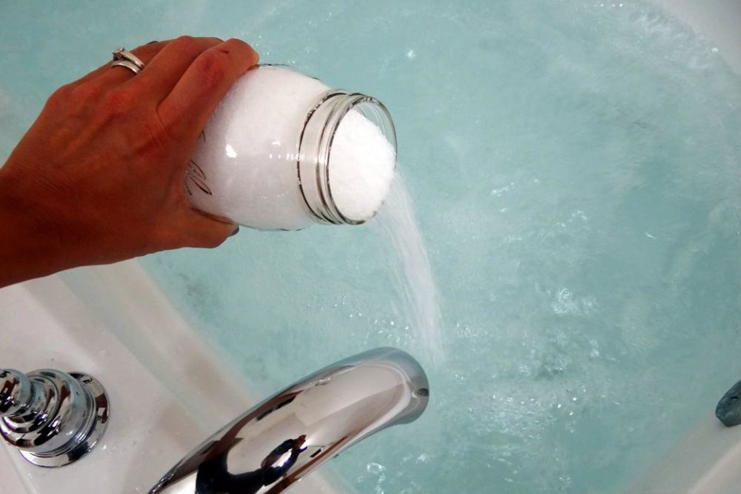
Magnesium content in the Epsom salt helps to fight against the dehydration when absorbed by the body.
Add cup of Epsom salt to the bath water and allow your baby to bath in it for about 10-15 minutes. This bath is safe for the children and may cause issues if swallowed. The Epsom bath is not recommended for the babies below 1 year.
What To Do During Dehydration?
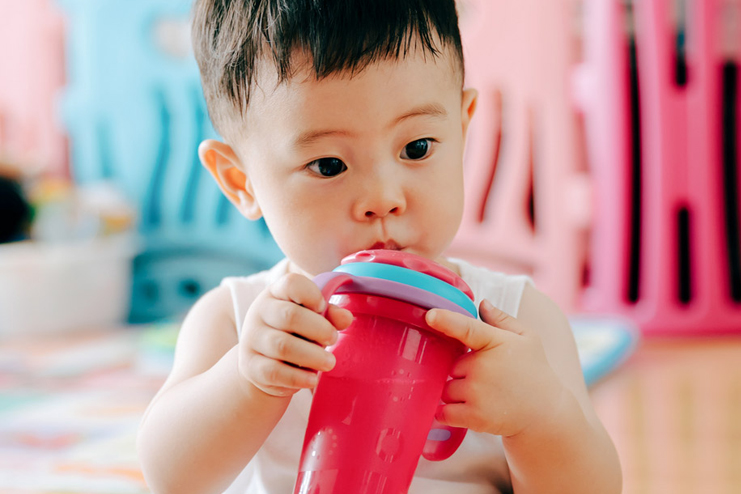
Dehydration is one of the side effects for vomiting and diarrhea. The following breastfeeding tips will help to decrease the episodes of vomiting and dehydration in your toddler:
• Breastfeed your baby more often, 10 minutes for every half an hour.
• Offer your baby oral rehydration solutions in between the breastfeeds.
• Give your infant ORS solution of about 1 tablespoon for every 15- 20 minutes.
• Mild dehydration can be treated at home, if the child has diarrhea but no vomiting, you can continue feeding a normal diet for your baby.
• For the children over one year give the sips of clear fluids like ORS, ice chips, flat caffeinated soda from 1-2 tablespoon for every 15-20 minutes.
• Good foods to begin after the recovery include bananas, rice, toast, dry cereals, and potatoes.
When To Call Doctor For Dehydration In Toddlers?
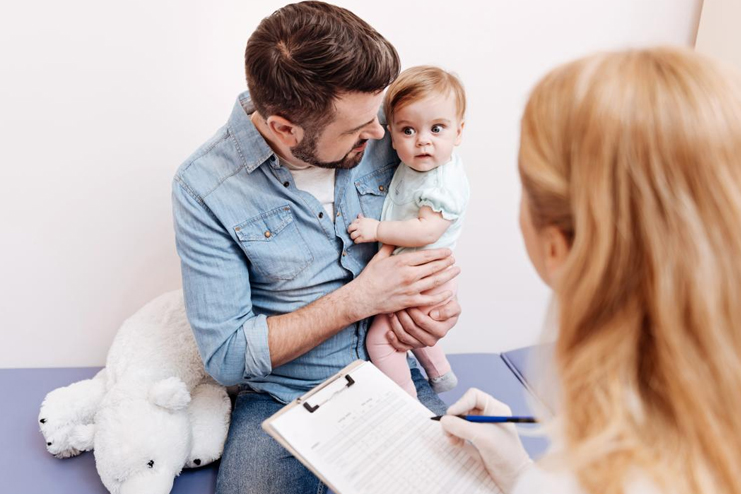
Contact your doctor if your child experiences the following conditions:
- Dry mouth
- Dry and wrinkled skin
- No tears while crying
- Your child does not urinate for longer time.
- Sunken eyes
- Bloody stools
- Vomiting for more than 24 hours and is consistently green.
- If the diarrhea lasts more than 3 days.
- Fever higher than 102 degrees Fahrenheit
- Less physical activity than usual
Tips To Prevent Dehydration In Children:
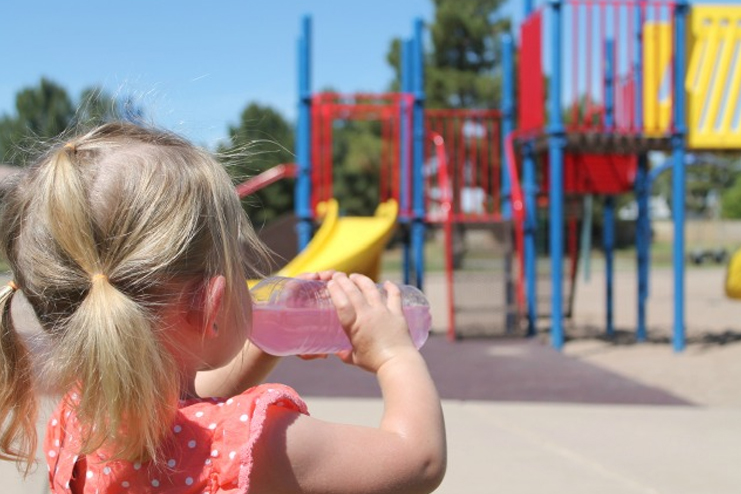
Don’t wait till your child becomes more thirsty. If you notice excessive thirstiness in your child. Then you are too late to recognize dehydration.
Here are a few tips to prevent dehydration in children:
- Frequent hand washing is the key to prevent many ill conditions that leads to dehydration.
- Offer more fluids and rehydration solutions at the moment you notice the sickness in your child.
- If your child has sore throat and finding difficulty while eating or drinking, ease the pain with acetaminophen, or ibuprofen.
- Make sure to vaccinate your child as per the schedule.
- Avoid high fiber and sugar foods during dehydration.
- Avoid the potential foods that can cause diarrhea in your toddler which can worse dehydration in your toddler.
- Make sure that your child drinks excessive water before, during, and after the heavy physical activity.
Do not allow your child to be exposed to the sun directly. Allow them to play in cool, shaded environment and pools.
In conclusion, dehydration is most common side effects of illness or viral infection in toddlers. Home remedies will work effectively in mild to moderate cases. Consult your doctor immediately under the severe conditions.
FAQ’s:
Is it normal for a baby to not pee for 12 hours?
Persistent dry diapers are a sign of dehydration in infants and toddlers. If your younger baby does not pass urine in 4-6 hours then it is a sign of dehydration. If your toddler passes no urine in 6-8 hours, then it represents dehydration and requires immediate attention.










































